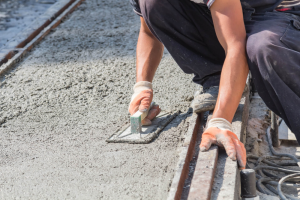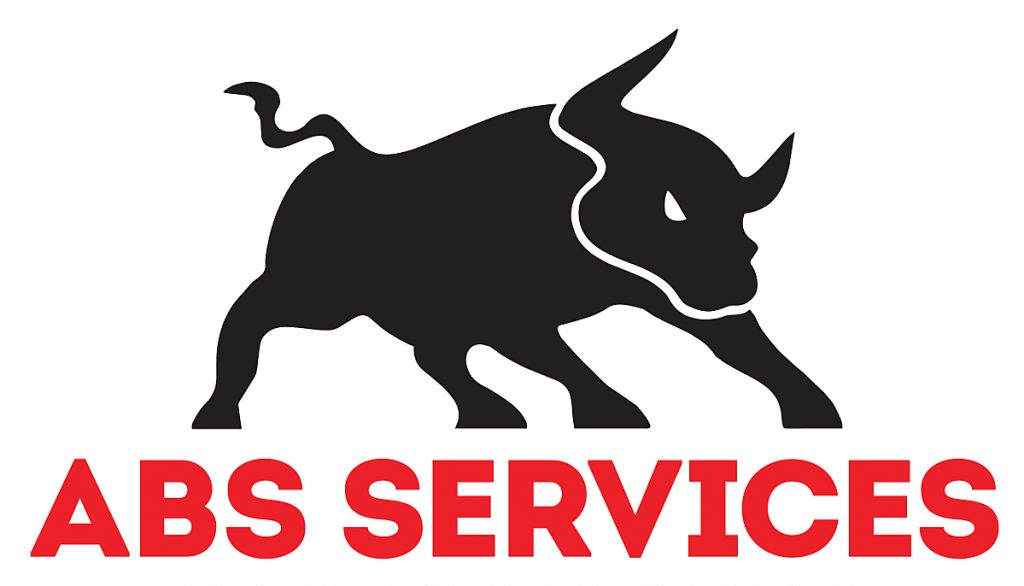 When it comes to construction projects, finding a reliable and experienced concrete contractor is paramount to the success of your endeavor. Whether you’re planning a new driveway, patio, or a complete commercial build, the quality of the concrete work can make or break the entire project. With numerous concrete service providers vying for your attention, it’s crucial to navigate the selection process carefully to ensure you find the right fit for your specific needs. In this comprehensive guide, we’ll delve into the key factors to consider when choosing a concrete contractor, drawing insights from industry experts and the experiences of previous clients. From evaluating credentials and qualifications to assessing communication skills and project management capabilities, we’ll equip you with the knowledge necessary to make an informed decision that will set your project up for long-term success.
When it comes to construction projects, finding a reliable and experienced concrete contractor is paramount to the success of your endeavor. Whether you’re planning a new driveway, patio, or a complete commercial build, the quality of the concrete work can make or break the entire project. With numerous concrete service providers vying for your attention, it’s crucial to navigate the selection process carefully to ensure you find the right fit for your specific needs. In this comprehensive guide, we’ll delve into the key factors to consider when choosing a concrete contractor, drawing insights from industry experts and the experiences of previous clients. From evaluating credentials and qualifications to assessing communication skills and project management capabilities, we’ll equip you with the knowledge necessary to make an informed decision that will set your project up for long-term success.
Assessing Credentials and Qualifications
One of the primary considerations when selecting a concrete contractor is their credentials and qualifications. A reputable and trustworthy contractor should possess the necessary licenses, certifications, and insurance coverage to ensure the safety and legality of the project.
Licensing and Insurance
Begin your vetting process by verifying that the contractor holds a valid license to operate within your local jurisdiction. This license demonstrates that the contractor has met the required standards and possesses the expertise to handle concrete projects. Additionally, ensure that the contractor maintains comprehensive liability and workers’ compensation insurance coverage. This safeguards both you and the contractor in the event of any accidents or damages during the construction process.
Industry Certifications
Look for contractors who have earned certifications from respected industry organizations, such as the American Concrete Institute (ACI) or the National Ready Mixed Concrete Association (NRMCA). These certifications signify the contractor’s commitment to staying up-to-date with the latest industry standards and best practices, ensuring the quality and professionalism of their work.
Specialized Expertise
Depending on the nature of your project, you may require a contractor with specialized expertise. For instance, if you’re planning a decorative concrete installation, seek out a contractor with a proven track record in that specific field. Their experience and knowledge will be invaluable in achieving the desired aesthetic and functional outcomes.
Evaluating Experience and Reputation
The contractor’s experience and reputation are crucial indicators of their ability to deliver high-quality results and manage the project effectively.
Years in Business
Look for a concrete contractor who has been in the industry for a significant period, preferably five years or more. Longevity in the field often correlates with a contractor’s ability to navigate challenges, maintain strong client relationships, and consistently deliver satisfactory outcomes.
Portfolio and References
Request a comprehensive portfolio of the contractor’s previous projects, paying close attention to the quality of workmanship, attention to detail, and overall aesthetics. Additionally, ask for references from past clients and reach out to them directly to gather insights into the contractor’s work ethic, communication skills, and ability to meet project deadlines.
Online Reputation
In the digital age, a contractor’s online presence and reviews can provide valuable insights into their reputation. Scour platforms like Google, Yelp, and the Better Business Bureau to read customer testimonials and assess the overall sentiment towards the contractor’s services.
Evaluating Communication and Project Management
Effective communication and efficient project management are essential for the success of any construction project. When evaluating potential concrete contractors, pay close attention to these critical aspects.
Communication Skills
Choose a contractor who demonstrates strong communication skills, both in person and through written correspondence. They should be responsive to your inquiries, willing to explain technical details in a clear and understandable manner, and keep you informed throughout the project’s duration.
Project Management Capabilities
Assess the contractor’s ability to manage the project effectively, from coordinating the work of subcontractors to ensuring adherence to timelines and budgets. A reliable contractor should have a well-defined plan in place to address potential challenges and minimize disruptions to the project’s progress.
Transparency and Accountability
Look for a contractor who is transparent about their processes, materials, and pricing. They should provide detailed written estimates, clearly outline the scope of work, and be upfront about any potential changes or additional costs that may arise during the project.
Comparing Quotes and Pricing
Obtaining and comparing quotes from multiple concrete contractors is a crucial step in the selection process. While cost is an important factor, it should not be the sole determining criterion.
Detailed Estimates
Insist on receiving detailed, itemized quotes from each contractor. This will allow you to thoroughly understand the breakdown of materials, labor, and any additional fees associated with the project. Beware of contractors who provide vague or incomplete estimates.
Realistic Pricing
Be cautious of contractors offering significantly lower prices compared to their competitors. While the temptation to save money may be strong, extremely low bids may indicate the use of inferior materials, substandard workmanship, or a lack of proper insurance coverage.
Value-Driven Approach
Instead of focusing solely on the lowest price, adopt a value-driven approach. Consider the contractor’s experience, reputation, and the overall quality of their work, as these factors can have a lasting impact on the project’s success and your long-term satisfaction.
Addressing Timeline and Scheduling Concerns
Concrete projects can be time-sensitive, and it’s essential to ensure that the contractor can meet your timeline requirements while maintaining a high level of quality.
Realistic Project Timeline
Discuss the estimated start and completion dates for the project, and ask the contractor to provide a detailed timeline outlining the various stages of work. Ensure that the timeline is realistic and accounts for potential delays, such as weather conditions or material availability.
Progress Updates and Accountability
Establish a clear communication plan with the contractor, agreeing on the frequency and format of progress updates. This will keep you informed about the project’s status and allow you to address any concerns promptly.
Contingency Planning
Inquire about the contractor’s approach to managing unexpected delays or challenges. Understand their strategies for expediting the project if necessary and their willingness to work with you to develop contingency plans.
Ensuring High-Quality Materials and Techniques
The quality of the materials and techniques used by the concrete contractor can significantly impact the durability and longevity of your project.
Material Sourcing and Specifications
Discuss the contractor’s preferred material suppliers and the specific concrete mix designs they plan to use. Ensure that the materials meet or exceed industry standards and local building code requirements.
Concrete Finishing Techniques
Understand the contractor’s approach to concrete finishing, such as their methods for achieving the desired texture, color, or decorative elements. Their expertise in this area can greatly enhance the aesthetics and functionality of your project.
Quality Control Measures
Inquire about the contractor’s quality control procedures, including any testing or inspections they perform to ensure the integrity of the concrete work. A reputable contractor should be transparent about their quality assurance processes.
Warranty and After-Sales Support
A reliable concrete contractor should stand behind their work and provide comprehensive warranties and after-sales support.
Workmanship Warranty
Discuss the length and terms of the contractor’s workmanship warranty, which should cover any defects or issues that arise within a reasonable timeframe after the project’s completion.
Manufacturer Warranties
Ensure that the contractor provides information about any applicable warranties from the manufacturers of the materials used in your project, such as sealers, coatings, or specialty concrete products.
Responsive After-Sales Support
Evaluate the contractor’s commitment to providing responsive and attentive after-sales support. This includes their willingness to address any concerns or issues that may arise, even after the project has been completed.
Prioritizing Safety and Compliance
The safety of the work site and compliance with local regulations should be a top priority when selecting a concrete contractor.
Adherence to Safety Protocols
Inquire about the contractor’s safety practices, including the use of personal protective equipment (PPE), site safety measures, and their overall commitment to maintaining a safe work environment.
Permit Acquisition and Compliance
Ensure that the contractor is responsible for obtaining all necessary permits and adhering to local building codes and regulations. Their ability to navigate the permitting process can significantly impact the project’s timeline and legal compliance.
Environmental Considerations
Discuss the contractor’s approach to sustainable and environmentally-friendly practices, such as the proper disposal of waste materials or the use of eco-friendly concrete mixes.
Fostering a Collaborative Partnership
The relationship between you and the concrete contractor should be built on a foundation of trust, mutual understanding, and a shared commitment to the project’s success.
Alignment of Expectations
Clearly communicate your expectations, preferences, and any specific requirements for the project. Ensure that the contractor fully understands and aligns with your vision.
Collaborative Problem-Solving
Encourage an open and collaborative approach to problem-solving. A good contractor should be willing to work with you to address any challenges that may arise, offering creative solutions and maintaining a flexible mindset.
Ongoing Communication and Feedback
Establish regular communication channels, encouraging the contractor to provide updates and seek your feedback throughout the project’s duration. This will help foster a strong working relationship and ensure the final outcome meets your satisfaction.
Choosing the right concrete contractor is a crucial decision that can have a lasting impact on the success and longevity of your construction project. By thoroughly evaluating the contractor’s credentials, experience, communication skills, and commitment to quality, you can ensure that your project is in capable hands.
ABS Services Provides Concrete Services
Whether you’re building a new property or renovating an existing one, concrete services are crucial to ensure the durability and longevity of your construction project.
> Learn More
Contact us (513-617-1401) for more information or a quote
—

About ABS Services
ABS Services provides comprehensive commercial construction services to Greater Cincinnati, Northern Kentucky, and Southeast Indiana. We have the experience, equipment, and the right team to get the job done!
> Learn More
